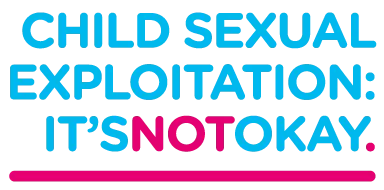Achieving Change Together (ACT)
Introducing ACT (Achieving Change Together)
The ACT team has been developed on behalf of the ten Greater Manchester Authorities, and is currently being piloted in Wigan and Rochdale Local Authorities. The initial catalyst for this project was to reduce the use and need of high cost and out of borough placements, including secure accommodation, when working with young people at risk of, or victims of, child sexual exploitation (CSE). It is worth noting that secure and out of borough placements are often experienced as punitive by young people and can be counter-productive, especially in terms of future interventions.
In a wish to improve outcomes for these young people and reduce costs, a bid was made to the Department for Education’s (DfE) Children’s Social Care Innovation Programme. The project was successful in securing c. £1 million.
Together with partners from Research in Practice, The Children’s Society and an external evaluation team working with the University of Bedfordshire and NatCen, the ‘CSE Innovation Team’ planned a staged approach to service design and delivery.
The project was designed in three phases:
1) a programme of action research to understand more about the problem identified, especially the journeys of young people affected;
2) co-design of a new pilot service, involving young people, parents/carers, social workers and key agencies; and
3) implementation of the pilot service to work across Wigan and Rochdale, and a cost benefit analysis of its impact. Learning from the pilot was intended to lead to the adoption of more effective ways of working in each authority, with the longer-term goal of replicating best practice across Greater Manchester.
From the outset we were committed to working closely with service users and other children, their families and professionals to co-design the ACT team and their practice. We wanted to know more about their experiences with social care and the system, including what worked well and what aspects could be improved upon.
ACT’s practitioners are experienced social workers working in a therapeutic and flexible manner, reflecting what survivors of abuse and CSE have said they most want from a service.
Primary Purpose
The primary purpose of developing ACT is to support the most vulnerable young people in a way that is both cost-effective and improves outcomes for young people and their families.
From ACT’s research and co-design the message of offering young people one authentic and trusting relationship was frequently reinforced. The importance of creating a strong and authentic relationship with the young people referred to the project, is considered as the golden rule of ACT’s work. Young people consistently expressed their unease at meeting with a number of professionals, from a variety of agencies during some of the most difficult times in their lives.
One of the overwhelming messages from the young survivors who were interviewed and contributed to the co-design was that a strength based model of intervention was not only preferable to encouraging meaningful engagement it also left them with hope about their future, which is what really mattered to them once services withdrew.
A Strength Based Approach
Defining strengths based practice (a broad overview)
Strengths-based practice is a collaborative process between the person supported by services and those supporting them, allowing them to work together to determine an outcome that draws on the person’s strengths and assets. As such, it concerns itself principally with the quality of the relationship that develops between those providing and being supported, as well as the elements that the person seeking support brings to the process
(Miller, Duncan and Hubble, 2001)
ACT’s Principles of Strength-Based Interventions
To reflect this in terms of practice ACT’s adopts the following principles to service interventions:
- A belief in competence, skills, strategies and knowledge of young people and their family/carers;
- Being future focused (using ‘Best Hopes’ and Preferred Futures’) rather focus on problems, risk and deficit;
- But, not ‘problem-phobic’ or ignoring the cumulative experiences of young people. ACT recognises ‘survival’ despite problems;
- Strengths are evidenced – not gratuitous for the sake of complimenting the young person or their family/carers to ‘feel better’;
- Practitioners work in collaboration – helping young person to notice their competence and agree future work in relation to their ‘preferred future’;
- Practitioners strike the delicate balance of building trusting relationships whilst fostering an independence from services. This starts with a strong belief in the young person and their family/carers as competent partners in the change process
Messages from ACT’s research have been distilled in to six principles of service design and delivery. These principles inform all of ACT’s processes and interventions.
ACT’s Six Principles:
- Young people must be at the centre
- CSE is complex; therefore the response cannot be simple or linear
- No agency can address CSE in isolation; collaboration is essential
- Knowledge is crucial
- Communities and families are valuable assets and my also need support
- Effective services require resilient practitioners
ACT’s Golden Thread:
Authentic relationships change lives
Threshold Criteria
ACT has two threshold criteria:
1. Young people at risk of, or experiencing, exploitation;
2. Placement instability, wherever that may be.
Project Evaluation – November 2016
The model of social work practice exemplified by ACT has shown very positive early results with highly complex young people. We strongly recommend that the approach is sustained for a longer period to assess the longer term outcomes and cost benefits.
The model of working has the potential to be transferred into other contexts and with other young people with complex needs (not just sexual exploitation).
A partnership between two geographically distant authorities may not be the most practical way to proceed, but the fact that it has worked despite the challenges supports continued commitment to partnership working across two or more local authorities.
Feedback from Young People, Parents and Partner Agency about ACT
- “They have no time limit. Everything is in the young person’s time and that is fantastic. They are brilliant. It’s as slow as you want to take it and they work with the immediate family around the impact of their work when they are not there. …They are really fluid and flexible and will respond immediately if they think it’s in the young person’s interest…. This model is what has been lacking for young people and the system just hasn’t worked for them in the past.” Partner agency
- “No one has have ever listened to me in my whole life”. Parent
- “Quite simply more of it please! [ACT worker] has been a fantastic source of support for X and for us as a family in the short time to date that she has been working with us. We believe that intense time and support has been needed for so long for X and for us all as a family.” Parent
- “I just feel like with an ACT worker you’ve got more support. I get more support from [her] than I have with anyone”. Young person
- “I trust her loads. She helps me all of the time and is always there when I need her”. Young person
The Future
ACT’s future is to expand across other Greater Manchester authorities, sharing our learning and developing an approach to complex safeguarding that is responsive, flexible and provides the best outcomes for young people at risk of exploitation. The model of which is yet to be agreed.
To contact ACT:
Email – [email protected]
or
Phone – 01706 922380
Further Information
For further information about ACT and research reports that helped define the project, please use the links below:
Conference Documents
Download the free app ‘Zappar’ on a smartphone
Share with others:






